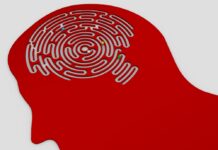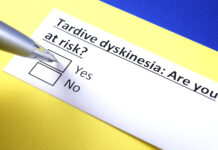Researchers: “We Do Not Suggest” Antipsychotics for Depression
Augmenting with antipsychotics was no better at reducing suicide than adding antidepressants, but led to increased risk of death from other causes.
Elderly Patients Who Stop Antipsychotics Have Better Outcomes
Older adults are often prescribed antipsychotics off-label for behavioral control in the hospital. But there’s no evidence for antipsychotics helping, and a great deal of evidence of harm.
Exploding Myths About Schizophrenia: An Interview with Courtenay Harding
The Vermont Longitudinal Study, led by Courtenay Harding, belied conventional beliefs about schizophrenia by showing remarkably good outcomes for patients discharged in the 1950s and '60s.
Deadly Prescriptions: New Study Links Antipsychotics to Life-Threatening Risks in Dementia Patients
With pharmaceutical companies pushing antipsychotics for off-label use, dementia patients are being put at risk for devastating health consequences. Research suggests safer alternatives exist—but why aren’t they being prioritized?
Psych Drugs May Increase Likelihood of Death in Schizophrenia
The drugs, especially benzos and high doses of antipsychotics, led to an increased risk of death within five years. Antidepressants also did not reduce mortality.
Service Users Report Psychiatric Professionals as the Least Helpful Factor in Quitting Antipsychotics
A new study published in Psychology and Psychotherapy: Theory, Research and Practice finds that psychiatrists and other doctors are the most unhelpful factor for...
Why Gradual Reduction of Antipsychotics Could Be Safer for Service Users
A new commentary published in Current Opinion in Psychiatry presents the case for slow tapering of antipsychotics. According to authors Mark Horowitz and Joanna...
The Ethics of Antipsychotic Dose Reduction and Patient Rights
New research highlights the ethical responsibilities of clinicians in supporting patients who choose to reduce or discontinue antipsychotic medication.
Youth Antipsychotic Use Linked to Increased Risk of Death within Five Years
Those aged 18-24 had an increased risk of death within five years on doses above 100 mg chlorpromazine equivalents.
Wunderink: Antipsychotics Can Be Tapered Safely Without Increasing Relapse Risk
Tapering antipsychotics slowly and with supported decision-making may improve care for patients with psychosis.
Case Studies Reveal Patient Empowerment Through Tapering Antipsychotics
A new study shows how different patients respond to tapering antipsychotic medication under expert guidance, highlighting personal empowerment and the complexities of withdrawal.
When Medication Changes More Than Symptoms: Antipsychotics’ Effect on Identity
Recent research reveals how antipsychotic medications can significantly impact users' identity and self-image, challenging existing clinical approaches.
Study Links Prenatal Antipsychotic Exposure to Developmental Delays and ADHD
A comprehensive review indicates that children exposed to antipsychotics in the womb face an increased risk of ADHD and developmental delays.
Long-term Outcomes Better for Those Who Stop Taking Antipsychotics
Research undermines the prolonged use of antipsychotics in schizophrenia treatment, suggesting improved social functioning and quality of life with discontinuation.
Study Highlights Difficulty of Antipsychotic Withdrawal
New research finds insomnia, anxiety, and depression are common symptoms of antipsychotic withdrawal, highlighting difficulties of discontinuation.
Despite Safety Risks, Prescribers Receive Little Guidance of Monitoring Antipsychotic Clozapine
A new review finds a lack of available guidance on how to effectively monitor adverse effects of antipsychotic drug clozapine.
Antipsychotics Lead to Worse Outcomes in First-Episode Psychosis
Those who did not get antipsychotics in the first month were almost twice as likely to be in recovery after five years.
Adding Antipsychotics Worsens Outcomes in Psychotic Depression
Outcomes were worse for all, with young people on combination therapy twice as likely to experience rehospitalization or death by suicide than those on antidepressants alone.
Cancer Risk Higher for Those on Clozapine
The antipsychotic clozapine, considered the “gold-standard” treatment for psychosis, was found to increase the risk of blood and lymph system cancers.
Breaking Blind: Antipsychotic Drug Efficacy May Be Overestimated
Only 4 of 188 antipsychotic trials assessed blinding, and in all 4 cases, the blind was broken, potentially leading to an overestimation of the drug effect.
Industry Corruption in Systematic Review for Injectable Antipsychotics
Researchers highlight how systematic reviews are compromised by pharmaceutical industry ties by exposing a study of injectable antipsychotics.
Many Service Users Interested in Decreasing Antipsychotic Use with Professional Help
New research examines service user attitudes on discontinuing and reducing antipsychotic drugs.
Antipsychotics Often Prescribed Without Informed Consent
New research reveals that patients are often not given fully informed consent before being prescribed antipsychotics.
Antipsychotics Worsen Cognitive Functioning in First-Episode Psychosis
Withholding antipsychotics may be beneficial for memory, the researchers write.
Manufacturer of Tardive Dyskinesia (TD) Drugs Finds TD Emotionally Devastating
“Patients expressed feeling unaccepted by society or uncomfortable in their own skin… A few indicated that they would rather be dead than have tardive dyskinesia.”

































